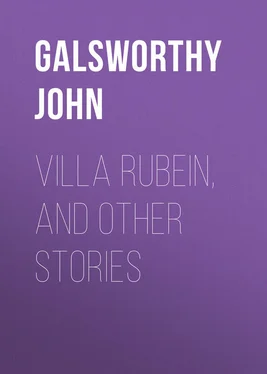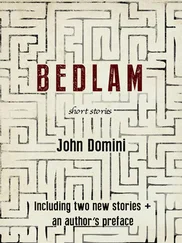John Galsworthy - Villa Rubein, and Other Stories
Здесь есть возможность читать онлайн «John Galsworthy - Villa Rubein, and Other Stories» — ознакомительный отрывок электронной книги совершенно бесплатно, а после прочтения отрывка купить полную версию. В некоторых случаях можно слушать аудио, скачать через торрент в формате fb2 и присутствует краткое содержание. Жанр: foreign_antique, foreign_prose, на английском языке. Описание произведения, (предисловие) а так же отзывы посетителей доступны на портале библиотеки ЛибКат.
- Название:Villa Rubein, and Other Stories
- Автор:
- Жанр:
- Год:неизвестен
- ISBN:нет данных
- Рейтинг книги:3 / 5. Голосов: 1
-
Избранное:Добавить в избранное
- Отзывы:
-
Ваша оценка:
- 60
- 1
- 2
- 3
- 4
- 5
Villa Rubein, and Other Stories: краткое содержание, описание и аннотация
Предлагаем к чтению аннотацию, описание, краткое содержание или предисловие (зависит от того, что написал сам автор книги «Villa Rubein, and Other Stories»). Если вы не нашли необходимую информацию о книге — напишите в комментариях, мы постараемся отыскать её.
Villa Rubein, and Other Stories — читать онлайн ознакомительный отрывок
Ниже представлен текст книги, разбитый по страницам. Система сохранения места последней прочитанной страницы, позволяет с удобством читать онлайн бесплатно книгу «Villa Rubein, and Other Stories», без необходимости каждый раз заново искать на чём Вы остановились. Поставьте закладку, и сможете в любой момент перейти на страницу, на которой закончили чтение.
Интервал:
Закладка:
“Greta, how can, you do such things? I don’t know what your father would say! I am sure I don’t know how to – so extraordinary – ”
“Please!” said Harz.
“You must come at once – so very sorry – so awkward!” They were standing in a ring: Harz with his eyebrows working up and down; the little lady fidgeting her parasol; Greta, flushed and pouting, her eyes all dewy, twisting an end of fair hair round her finger.
“Oh, look!” The coffee had boiled over. Little brown streams trickled spluttering from the pan; the dog, with ears laid back and tail tucked in, went scurrying round the room. A feeling of fellowship fell on them at once.
“Along the wall is our favourite walk, and Scruff – so awkward, so unfortunate – we did not think any one lived here – the shutters are cracked, the paint is peeling off so dreadfully. Have you been long in Botzen? Two months? Fancy! You are not English? You are Tyrolese? But you speak English so well – there for seven years? Really? So fortunate! – It is Greta’s day for English.”
Miss Naylor’s eyes darted bewildered glances at the roof where the crossing of the beams made such deep shadows; at the litter of brushes, tools, knives, and colours on a table made out of packing-cases; at the big window, innocent of glass, and flush with the floor, whence dangled a bit of rusty chain – relic of the time when the place had been a store-loft; her eyes were hastily averted from an unfinished figure of the nude.
Greta, with feet crossed, sat on a coloured blanket, dabbling her finger in a little pool of coffee, and gazing up at Harz. And he thought: ‘I should like to paint her like that. “A forget-me-not.”
He took out his chalks to make a sketch of her.
“Shall you show me?” cried out Greta, scrambling to her feet.
“‘Will,’ Greta – ’will’. how often must I tell you? I think we should be going – it is very late – your father – so very kind of you, but I think we should be going. Scruff!” Miss Naylor gave the floor two taps. The terrier backed into a plaster cast which came down on his tail, and sent him flying through the doorway. Greta followed swiftly, crying:
“Ach! poor Scrufee!”
Miss Naylor crossed the room; bowing, she murmured an apology, and also disappeared.
Harz was left alone, his guests were gone; the little girl with the fair hair and the eyes like forget-me-nots, the little lady with kindly gestures and bird-like walk, the terrier. He looked round him; the room seemed very empty. Gnawing his moustache, he muttered at the fallen cast.
Then taking up his brush, stood before his picture, smiling and frowning. Soon he had forgotten it all in his work.
II
It was early morning four days later, and Harz was loitering homewards. The shadows of the clouds passing across the vines were vanishing over the jumbled roofs and green-topped spires of the town. A strong sweet wind was blowing from the mountains, there was a stir in the branches of the trees, and flakes of the late blossom were drifting down. Amongst the soft green pods of a kind of poplar chafers buzzed, and numbers of their little brown bodies were strewn on the path.
He passed a bench where a girl sat sketching. A puff of wind whirled her drawing to the ground; Harz ran to pick it up. She took it from him with a bow; but, as he turned away, she tore the sketch across.
“Ah!” he said; “why did you do that?”
This girl, who stood with a bit of the torn sketch in either hand, was slight and straight; and her face earnest and serene. She gazed at Harz with large, clear, greenish eyes; her lips and chin were defiant, her forehead tranquil.
“I don’t like it.”
“Will you let me look at it? I am a painter.”
“It isn’t worth looking at, but – if you wish – ”
He put the two halves of the sketch together.
“You see!” she said at last; “I told you.”
Harz did not answer, still looking at the sketch. The girl frowned.
Harz asked her suddenly:
“Why do you paint?”
She coloured, and said:
“Show me what is wrong.”
“I cannot show you what is wrong, there is nothing wrong – but why do you paint?”
“I don’t understand.”
Harz shrugged his shoulders.
“You’ve no business to do that,” said the girl in a hurt voice; “I want to know.”
“Your heart is not in it,” said Harz.
She looked at him, startled; her eyes had grown thoughtful.
“I suppose that is it. There are so many other things – ”
“There should be nothing else,” said Harz.
She broke in: “I don’t want always to be thinking of myself. Suppose – ”
“Ah! When you begin supposing!”
The girl confronted him; she had torn the sketch again.
“You mean that if it does not matter enough, one had better not do it at all. I don’t know if you are right – I think you are.”
There was the sound of a nervous cough, and Harz saw behind him his three visitors – Miss Naylor offering him her hand; Greta, flushed, with a bunch of wild flowers, staring intently in his face; and the terrier, sniffing at his trousers.
Miss Naylor broke an awkward silence.
“We wondered if you would still be here, Christian. I am sorry to interrupt you – I was not aware that you knew Mr. Herr – ”
“Harz is my name – we were just talking”
“About my sketch. Oh, Greta, you do tickle! Will you come and have breakfast with us to-day, Herr Harz? It’s our turn, you know.”
Harz, glancing at his dusty clothes, excused himself.
But Greta in a pleading voice said: “Oh! do come! Scruff likes you. It is so dull when there is nobody for breakfast but ourselves.”
Miss Naylor’s mouth began to twist. Harz hurriedly broke in:
“Thank you. I will come with pleasure; you don’t mind my being dirty?”
“Oh no! we do not mind; then we shall none of us wash, and afterwards I shall show you my rabbits.”
Miss Naylor, moving from foot to foot, like a bird on its perch, exclaimed:
“I hope you won’t regret it, not a very good meal – the girls are so impulsive – such informal invitation; we shall be very glad.”
But Greta pulled softly at her sister’s sleeve, and Christian, gathering her things, led the way.
Harz followed in amazement; nothing of this kind had come into his life before. He kept shyly glancing at the girls; and, noting the speculative innocence in Greta’s eyes, he smiled. They soon came to two great poplar-trees, which stood, like sentinels, one on either side of an unweeded gravel walk leading through lilac bushes to a house painted dull pink, with green-shuttered windows, and a roof of greenish slate. Over the door in faded crimson letters were written the words, “Villa Rubein.”
“That is to the stables,” said Greta, pointing down a path, where some pigeons were sunning themselves on a wall. “Uncle Nic keeps his horses there: Countess and Cuckoo – his horses begin with C, because of Chris – they are quite beautiful. He says he could drive them to Kingdom-Come and they would not turn their hair. Bow, and say ‘Good-morning’ to our house!”
Harz bowed.
“Father said all strangers should, and I think it brings good luck.” From the doorstep she looked round at Harz, then ran into the house.
A broad, thick-set man, with stiff, brushed-up hair, a short, brown, bushy beard parted at the chin, a fresh complexion, and blue glasses across a thick nose, came out, and called in a bluff voice:
“Ha! my good dears, kiss me quick – prrt! How goes it then this morning? A good walk, hein?” The sound of many loud rapid kisses followed.
“Ha, Fraulein, good!” He became aware of Harz’s figure standing in the doorway: “Und der Herr?”
Читать дальшеИнтервал:
Закладка:
Похожие книги на «Villa Rubein, and Other Stories»
Представляем Вашему вниманию похожие книги на «Villa Rubein, and Other Stories» списком для выбора. Мы отобрали схожую по названию и смыслу литературу в надежде предоставить читателям больше вариантов отыскать новые, интересные, ещё непрочитанные произведения.
Обсуждение, отзывы о книге «Villa Rubein, and Other Stories» и просто собственные мнения читателей. Оставьте ваши комментарии, напишите, что Вы думаете о произведении, его смысле или главных героях. Укажите что конкретно понравилось, а что нет, и почему Вы так считаете.












